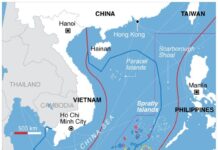China has intensified its efforts to censor criticism regarding its economic challenges. This increased censorship targets content highlighting sensitive issues like income inequality, youth unemployment, and poverty, particularly among the elderly. These issues are of significant concern as they affect large segments of the population and could potentially undermine the political legitimacy of the Chinese Communist Party (CCP).
The government’s crackdown has included censoring news items and social media content that portray the economic difficulties faced by disadvantaged groups. Notable incidents include the removal of infographics on social issues from platforms like Sina Weibo, despite these infographics being based on Chinese government statistics. Additionally, content focusing on the challenges faced by migrant workers and the elderly living on minimal income has been censored.
This pattern of censorship is not new; the CCP has repeatedly imposed increased restrictions on economic news, especially when the economy faces downturns. Past incidents of heightened censorship have been linked to events such as stock market plunges and the trade war with the United States. The current round of censorship, however, is more focused on structural weaknesses within the Chinese economy, suggesting that control over the discussion of economic data may become more routine.
The consequences of such stringent censorship are multifaceted. It not only impacts businesses, investors, journalists, and ordinary citizens but also risks breeding mistrust among the public. This distrust could potentially lead to self-fulfilling economic downturns as consumers and investors react to their perceptions of the economic situation.
In summary, China’s current economic challenges and the government’s response through increased censorship reflect the delicate balance the CCP is trying to maintain between maintaining economic stability and controlling the narrative around its economic policies and performance.








